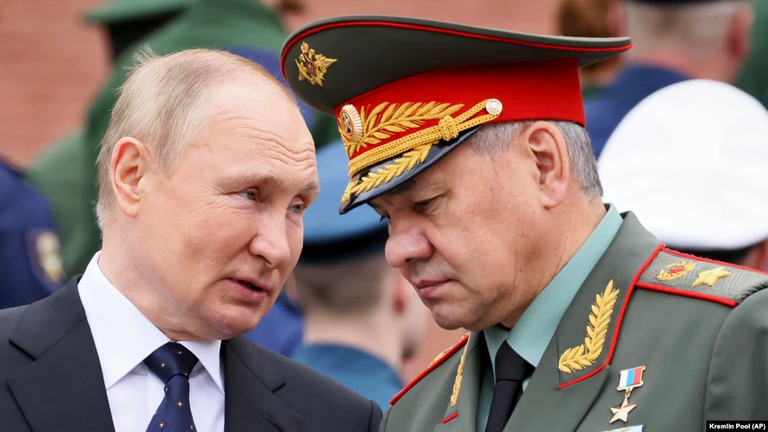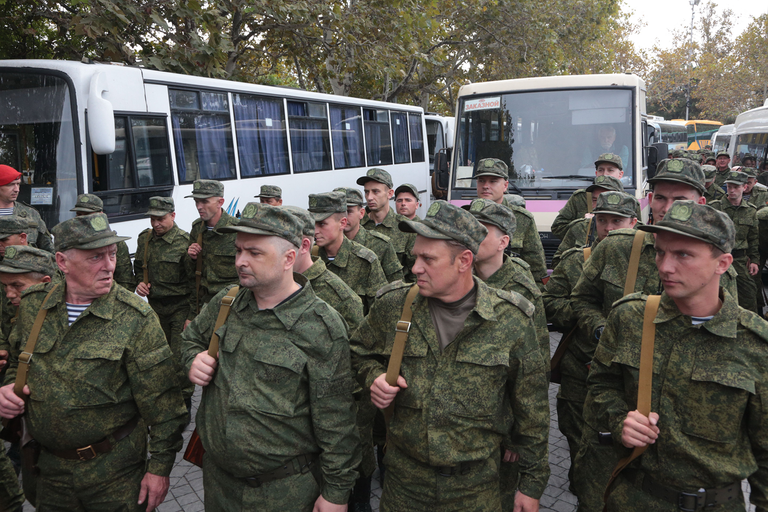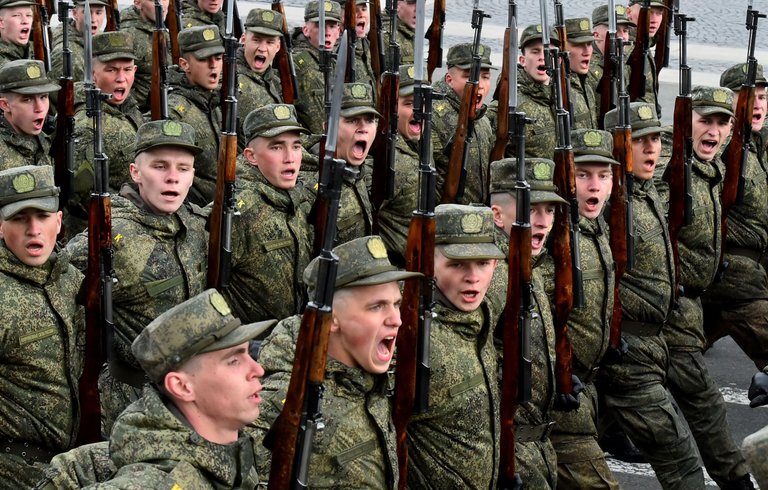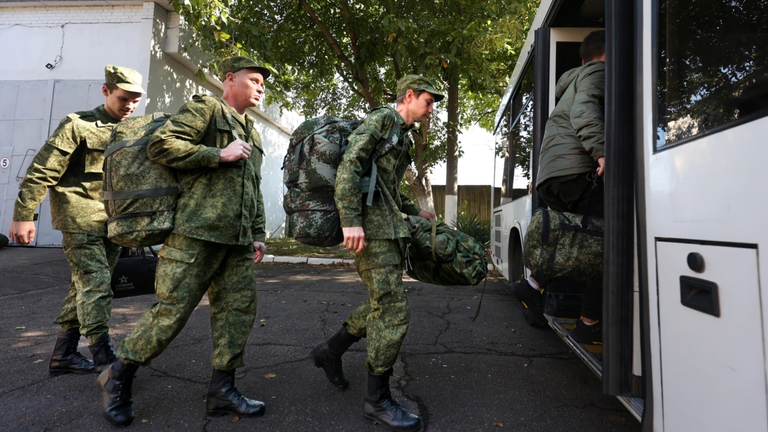
As you might have noticed, the war isn't going well for Putin. The Russian army has recently suffered significant losses in the Donbas around Bakhmut, and their logistics operation in the south is under severe strain. In reaction to the Russian army's shortcomings, Russian nationalists have once again started calling for escalation, and in the past week or so there have even been rumors that Putin is about to declare a general mobilization. So in this article, we're going to take a look at those rumors and try and figure out whether Putin might actually go all out and declare a general mobilization.
So let's start by taking a look at the rumors themselves. In the last week or so, certain Russian nationalist telegram channels have claimed that general mobilization will begin in January. A Russian nationalist telegram channel with about 70,000 subscribers reported that general mobilization would begin in January, citing comments by a member of Russia's defense committee who implied earlier this month that general mobilization would be required if Ukrainians continue to strike targets in Belgorod. On the same day, an independent Russian outlet reported that Russian state agencies were continuing to prepare for another round of mobilization despite the fact that on October 31st Putin announced that his partial mobilization was complete.

Now, we should say that this isn't the first time we've heard this sort of thing. The first murmurings of general mobilization came all the way back in early March, when the state of Maine passed a law mandating men of fighting age to appear at a military commissioner's office without receiving a conscription notice from regional authorities. Now a similar speculation in May before Putin's Victory Parade speech and again in September before the partial mobilization. Nonetheless, just because it hasn't happened in the past doesn't mean that it won't happen in the future, so let's run through three reasons why Putin might go for a general mobilization and then three reasons why he might not.
Is, so let's start with the three reasons he might go for it. They are: The Russian army doesn't currently have enough personnel, and the Russian army doesn't currently have enough equipment. If it did, it would appease Russian nationalists. Let's start with the first one. Despite the recent partial mobilization, which was supposed to add 300,000 troops to the estimated 1.7 million already in Ukraine, the Russian army is still outmatched on the battlefield.
While no one knows quite how many Russians have died so far, U.S. intelligence puts it at over a hundred thousand, and the rushing army is looking truly exhausted. As well as abandoning Kherson earlier this month, they're also struggling in Donbass. And it looks like Russian forces have just suffered a serious defeat around Bakhmut, which is still under Ukrainian control. A well-executed general mobilization and a whole load of troops might just help to rejuvenate the Russian army and at least give its troops some time to rest and recuperate.

The second reason, though, is equipment, because as things stand, it looks like the Russian army is running low on hardware. There have been widespread reports of the new Russian conscripts having to use antiquated or improper equipment, and some conscripts have apparently actually had to buy their own armor online. On top of that, it looks like the Russians might be running low on missiles, which is why they're having to engage in the continuous bombing campaign of the Ukrainian infrastructure they once did and why they're apparently relying on Iranian-made drones and North Korean rockets. A general mobilization involving telling Russian manufacturers to stop making whatever they're currently making and instead make Russian caliber missiles and other military hardware could help to solve this problem.
The third and final reason, though, is that a general mobilization would appease Russian nationalists. While it might not go down too well with your average Russian, a general mobilization would at least appease the more hawkish Russian nationalists, who arguably pose the greatest political threat to Putin at the moment. That's because Russian nationalists and hardliners, including people like Kajov and Yevgeni Prizgovin, have been calling for an escalation in response to Ukraine's successes on the battlefield. Now, while Putin himself isn't under too much political pressure at the moment, polls still show that he's by far and away the most popular Russian politician. If the Russian army loses even more territory on the battlefield, especially around Crimea, then the Russian nationalists might accuse him of being too weak and essentially chickening out of an escalation. Declaring a general mobilization would clearly give Putin political cover against this sort of charge.

all right, So those are the three reasons why Putin might go for a general mobilization, but here are the three reasons why he might note it might not: The partial mobilization didn't go all that well; he doesn't have the money to do it, and it will go down really badly with the Russian general public. Let's start with the partial mobilization, which has been a failure in many respects. For starters, it hasn't really helped on the battlefield; the Ukrainians have continued to retake territory, and the Russian army is constantly backpedaling. This is partly because it's been a logistical disaster; as we mentioned a second ago, there have been widespread reports that some recruits are under-supplied and have even had to buy their own equipment. On top of that, it's caused real upset among Russia's ethnic minorities, who were disproportionately affected.
The Kremlin mostly conscripted men from Russia's minority republics, which prompted anger from both locals and the regional authorities. One of the governors of the region even implied that Moscow was breaking their own rules by over-conscripting from his area. And it became such an issue that Putin even made a rare public apology for it in late September. You get the idea then: if the Russian State didn't have the logistical capacity to pull off a partial mobilization, which hasn't even helped on the battlefield and has mainly just upset regional authorities with histories of separatism, who's to say the general mobilization would go any better?
After that, the second reason he might not is that they just don't have any money. A general mobilization would be exceptionally costly, and while it originally fared surprisingly well, the Russian economy is struggling at the moment. Thanks in part to the falling prices of oil and gas, Russia's revenues are falling fast. Which is in turn shrinking Putin's budget surplus, and just last week, Russia's economy officially entered a recession with a 4 percent contraction. And the Kremlin apparently knows this, which is why in their latest budget they only increased military spending by about 40 percent, the equivalent of 4.5 percent of GDP. Given that the partial mobilization increased troop numbers by about 25 all on its own, this means that spending per soldier is barely increasing, and it's not the sort of numbers you'd expect to see if Putin was really planning for a general mobilization.

You get the picture, Russia doesn't have the fiscal space for a general mobilization; the most recent budget essentially confirms this, which leads us on to the third and final reason the Russian public just won't have it. While polling does show that the Russian public still overwhelmingly supports both Putin and their so-called special military operation, they were less enthusiastic about the partial mobilization. So it's reasonable to expect even less enthusiasm for a general mobilization, not only because the political impact of the partial mobilization was mitigated by the fact that it disproportionately targeted politically unimportant ethnic groups, but also because one of the things that has made Putin most popular with the Russian public is his intention to shift away from mass conscription and toward a professional contracted army. In fact, it was one of Putin's very first policies he introduced when he came to power in the early 2000s, and he's reiterated his intention to move away from conscription multiple times over the years since. In fact, in 2016, the number of contracted soldiers overtook the number of draftees for the first time, and before Ukraine, the Russian army had about two-thirds contracted troops.
Obviously, a general mobilization would be unpopular in and of itself, but it would also be a direct violation of an implicit contract between Putin and the Russian people that as long as he stays in power, he'll keep them away from the front lines. So those are the reasons on either side of the argument. These factors could see Putin put off from mobilization, but they might lead him to realize that this is his only realistic shot at a victory. Ultimately, though, this is a live issue, so we just have to watch and see how it plays out.